Search
Search Results
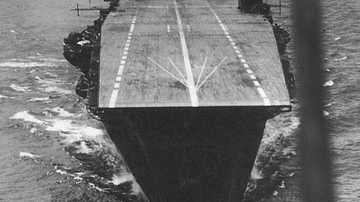
Image
Japanese Aircraft Carrier Akagi
A 1942 photograph of the Japanese aircraft carrier Akagi. Aichi D3A Type 99 dive bombers are preparing for takeoff. Taken during the Indian Ocean Raid (March 1942) which attacked Sri Lanka (then called Ceylon).
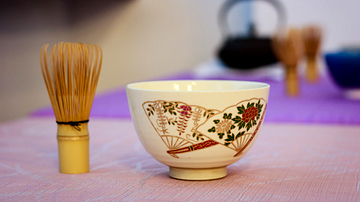
Image
Japanese Whisk & Tea Bowl
A traditional bamboo whisk (chasen) and bowl (chawan) used in the Japanese tea ceremony.
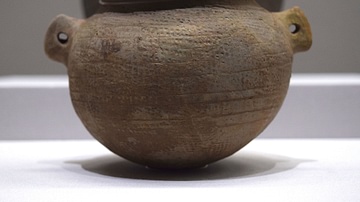
Image
Ancient Korean or Japanese Jar
This jar was excavated from a box-style stone coffin in Daishogunyama Tumulus on Tsushima, the Japanese island closest to the Korean peninsula. Its round body was created by lightly beating the outer surface of the bottom part with a beating...
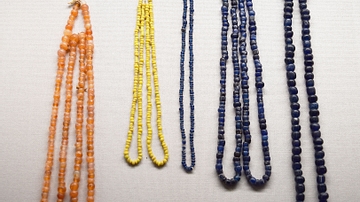
Image
Japanese Beads from the Kofun Period
These beads come from Japan and date from the Kofun period (250-538 CE) in Japanese history. In the Kofun Period beads of various shapes and materials were worn as fashion accessories, used in rituals, and buried in tombs. They include, for...
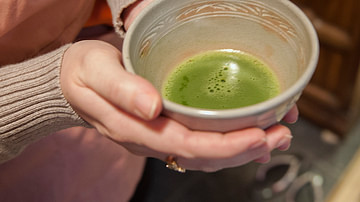
Image
Japanese Green Tea
A bowl of whisked green tea (matcha), typical of the traditional Japanese tea ceremony.
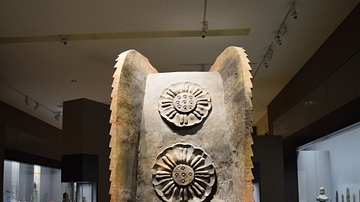
Image
Japanese Ridge-End Ornament
This large block comes from the ruins of Tosaka-dera (Takaidahaiji) in Osaka, Japan. It dates from the Asuka period or the Nara period in Japanese history, which overlapped with the 7th and 8th century CE. (Tokyo National Museum)
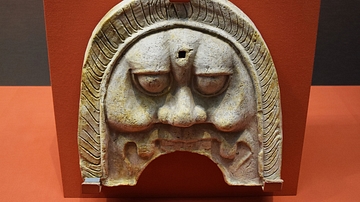
Image
Ancient Japanese Tile
This ridge-end tile is from the former Fuchidaka Temple site in Aichi, Japan. It dates from the 8th century CE, which corresponds to the Nara period in Japanese history. (Tokyo National Museum)
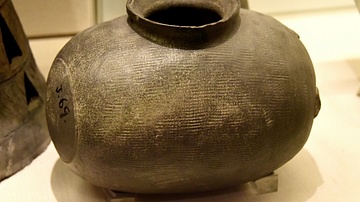
Image
Japanese Funerary Vessel
This Japanese funerary vessel is an example of Sue wares, originally made for tombs. They were probably used for feasting and drinking at the time of the funeral and then buried with the person who had died. They were crafted on a potter's...
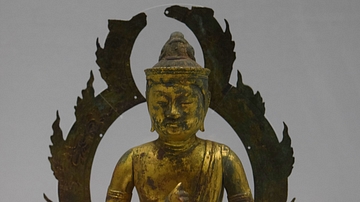
Image
Japanese Statuette of Buddha
This Japanese statuette of Buddha dates from the 12th century CE and the Heian Period. It was excavated at Mt. Nachi in Wakayama, Japan, and it is made of gilt bronze. (Tokyo National Museum)
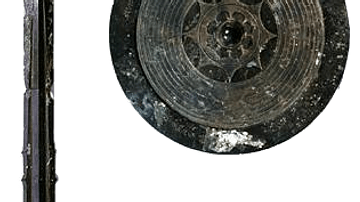
Image
Japanese Imperial Regalia
An aritst's impression of three items from the unseen Japanese imperial regalia. In Japanese mythology the sun goddess Amaterasu gave her son Ninigi three gifts to aid his rule on earth: the Yasakani, a fabulous jewel (or pearls or magatama...